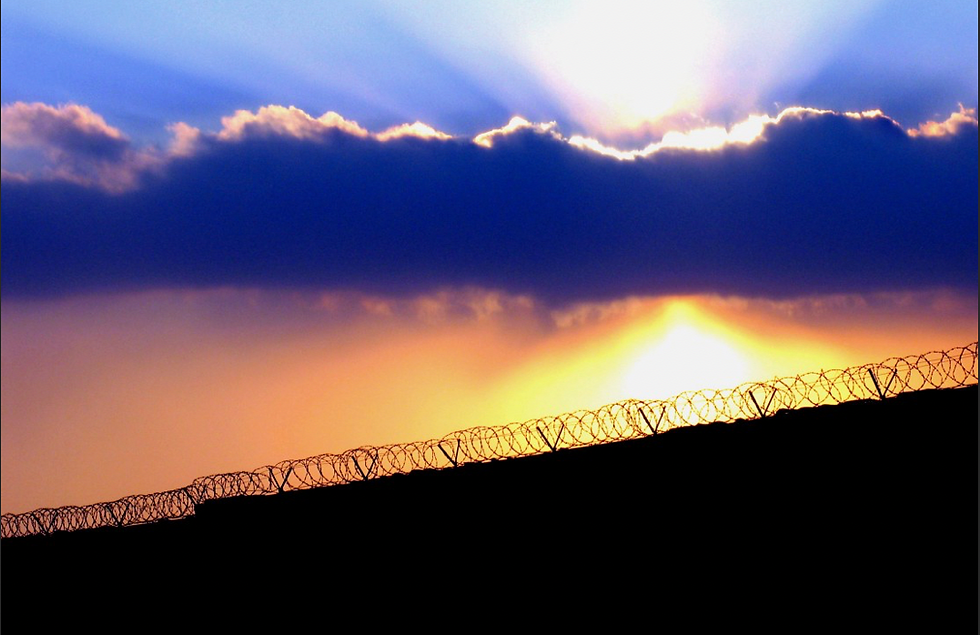Prison is Bad for Mental Health.
- Dr. Karen Gedney

- Sep 9, 2019
- 3 min read

Prison life involves a whole range of novel stressors and other conditions of life different from life outside. The World Health Organization describes prisons as"bad for mental Health"[cf., mh_in_prison.pdf]. Prison life is lived under conditions of overcrowding, violence in different forms, enforced solitude and lack of privacy at the same time, lack of meaningful activity and forced labor at activity that is not meaningful in most case, isolation from personal social networks, deep anxiety in many cases about future prospects, and inadequate health services. The conditions in prisons are manifest in an increased risk of suicide. A study of prisoners found that Americans who have spent time in prisonare nearly twice as likely to have suffered from post-traumatic stress disorder (PTSD).The causality of that finding is not clear since PTSD from other life events could have contributed to their criminal behavior and imprisonment. Psychiatric disorders such as major depression, bipolar disorder, and schizophrenia affect between 20 and 25 percent of prison populations.
Effects on the Brain which Affect the Body.
When someone goes to prison,his or her brain gets flooded with adrenaline and cortisol (the fight or flight hormones)produced by the adrenal gland. The brain finds itself in a long-term state of emergency. There is a continuous sense of menace. Parts of your brain (the amygdala) send continuous distress signals to the brain's command center (the hypothalamus). The signals are transmitted through the body via the autonomic nervous system that regulates involuntary reactions like heart rate, breathing, and digestion. The reaction of fight or flight that the body gets ready for, are not possible in prison.
The pituitary gland is stimulated by the hypothalamus to generate a "stress hormone." All these stress hormones get circulated through the inmate's body on a nearly continuous basis causing increases in blood pressure. He or she will begin using stored glucose for additional energy in the acute stress state. This reduces the appetite for food.
In a continuous state of stress, primitive parts of the brain take over. Thoughts become clouded and the cerebral cortex (responsible for rational thinking) begins to shut down. Life becomes a primitive struggle to survive. The flood of fight-or-flight hormones turns the prisoner's behavior into a struggle to survive, to buy alliances, instead of forming relationships. The prisoner becomes less human-like and more animal-like. Life is full of fighting and avoiding harm.
Some prisoners may actually thrive in the jungle higher-than-normal state of alarm and hyper-awareness. Others may have panic attacks, have trouble focusing and concentrating, and even remembering things. Prisoners may even develop hallucinations, paranoid ideas, and obsessions as defenses against an unacceptable environment.
Lasting Effects of Worse-Case Scenarios.
In worse cases, like situations where the prisoner has to be put in solitary confinement, the chance of hallucinations and extreme sleep disturbance are increased. Brain damage may occur because of the long exposure to intense levels of stress hormone. Harvard Medical School researchers have found that exposure to prison life, especially solitary confinement, causes a brain syndrome they called the"SHU Syndrome", named after the California State Prison's Security Housing Unit (SHU). Exposure to long periods of solitary confinement causes lasting states of anxiety, paranoia, suicidal thoughts, and psychotic symptoms.
There is no way to tell how long the effects of prison life will last after a prisoner is released. It's impossible to tell how long fight-or-flight and stress hormones will remain in the bloodstream and how long it would take for former-prisoners' bodies to stop generating them. Some people will be extremely lucky and others will be profoundly prone to suffer long term effects including PTSD.
Dr. Karen Gedney is an author, speaker, and mentor supporting progressive work with prisoners and ex-prisoners. Please contact usto learn more.





Altogether I have 13 years in prison & good bit of time as a juvenile in the juvenile system. Most of this info is absolutely true I live with most of this everyday, GOD BLESS!
Bad mental health, unchecked leads to more bad mental health.